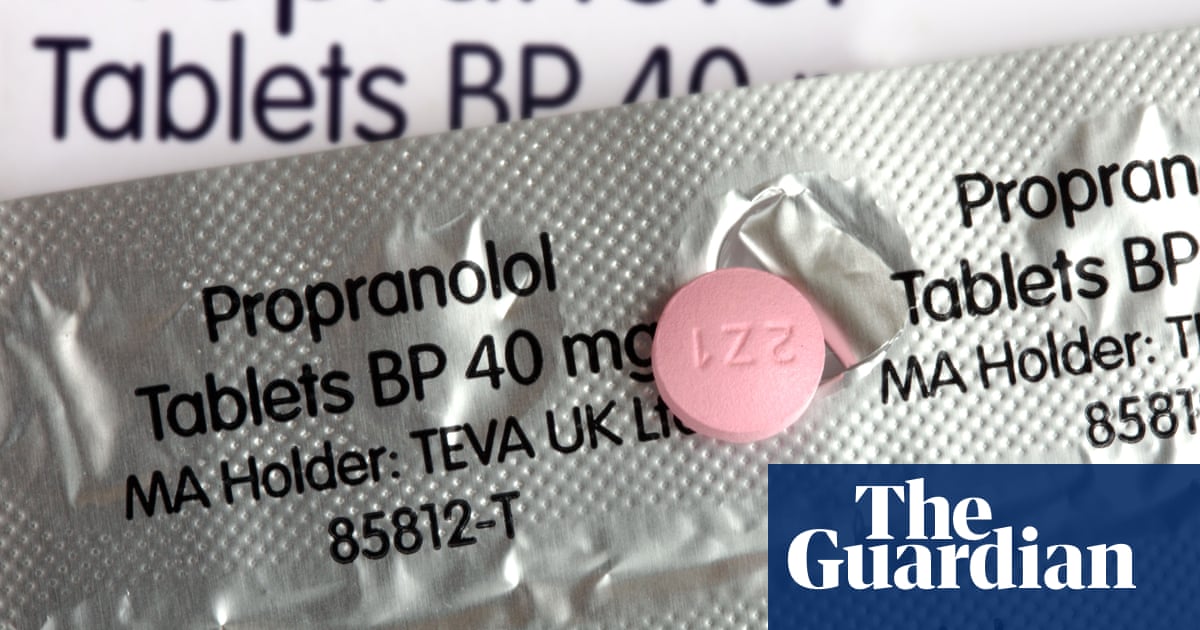The article highlights the increasing concerns surrounding the use of beta blockers for anxiety management, particularly in light of recent safety investigations and expert opinions. It brings to attention the potential risks associated with these medications, which are not recommended for anxiety treatment according to national guidelines. The perspectives shared by a pharmacist and a patient underscore the need for caution and alternative coping strategies.
Concerns about Beta Blockers
The article emphasizes that beta blockers, particularly propranolol, have been linked to significant adverse outcomes and toxicity, especially in overdose situations. The mention of the 2020 healthcare safety investigation report signals an urgency to reconsider the prescription practices for these medications. The pharmacist's assertion that GPs should exercise extreme caution reinforces the idea that beta blockers may not be the safest option for managing anxiety.
Personal Experiences Highlight Risks
The personal account of a patient who experienced worsened symptoms while taking beta blockers adds a human element to the discussion. This narrative illustrates the potential downsides of relying on medication as a quick fix for anxiety, suggesting that there may be more effective long-term coping strategies. The emphasis on the lack of conclusive evidence for beta blockers' effectiveness in treating anxiety raises further questions about their appropriateness in such cases.
Public Perception and Awareness
The article seeks to create awareness among the public regarding the risks associated with using beta blockers for anxiety. By presenting expert opinions and personal stories, it encourages readers to critically evaluate their medication choices and consider alternative methods for managing anxiety. This aligns with a broader movement towards more informed patient decisions in healthcare.
Potential Hidden Agendas
While the article appears to focus on medication safety, there may be an underlying motive to promote non-pharmacological treatments for anxiety. The push for alternative coping strategies could be interpreted as a critique of the pharmaceutical industry and its approach to mental health treatment.
Manipulative Elements
The article does contain elements that could be seen as manipulative, particularly in its stark warnings and the emphasis on negative outcomes associated with beta blockers. The language used may incite fear and caution, influencing public perception against the use of these medications without fully considering the complexities of anxiety treatment.
Impact on the Healthcare Industry
In the broader context, this article could impact the healthcare industry by prompting discussions on prescribing practices and encouraging healthcare professionals to explore and recommend alternative treatments. Increased scrutiny of beta blockers may lead to changes in prescribing patterns and a shift towards more holistic approaches in mental health care.
Community Support and Target Audience
The article likely resonates more with communities advocating for mental health awareness and those skeptical of pharmaceutical interventions. It appeals to readers who may be seeking safer, more effective treatments for anxiety.
Economic and Market Implications
From a financial perspective, a shift in public sentiment away from beta blockers could impact pharmaceutical companies that produce these medications. If alternative therapies gain traction, it could lead to a decline in the market for beta blockers and similar drugs.
Relevance to Current Global Issues
In light of ongoing discussions about mental health, this article contributes to the dialogue on the appropriateness of medication versus therapy. It reflects a growing awareness of mental health issues in society, making it relevant to current global issues.
AI Involvement in Article Composition
It's possible that AI tools were used in crafting the article, as they can assist in structuring narratives and analyzing data. However, the personal stories suggest a human touch that may not be easily replicated by AI. If AI played a role, it might have influenced the clarity and emphasis on certain themes, such as medication safety.
The article is generally reliable, but it is important to approach its conclusions critically. It effectively raises awareness about the risks of beta blockers, yet its potential biases must be considered when evaluating its overall message.
